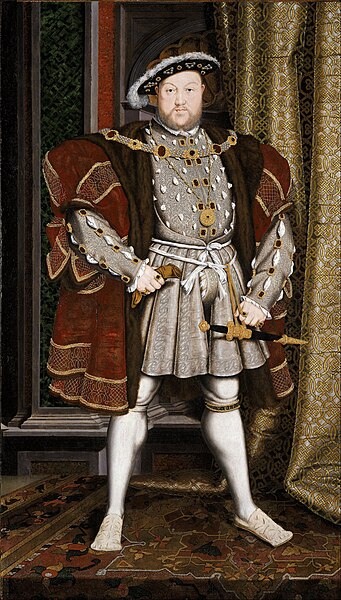Join us as we explore significant events that occurred on January 21st, tracing their impact on history and society.
Through a chronological journey, we highlight key moments ranging from political milestones and technological innovations to cultural shifts and movements for social justice. Each event sheds light on the complexities of our shared history, offering insights into how the past shapes our present and future.
This exploration serves not only to commemorate these historical anniversaries but also to reflect on their enduring significance in today’s world.
January 21st Events in History
1525 – The Swiss Anabaptist Movement, which played a pivotal role in the Reformation, is born
On January 21, 1525, a significant event took place that marked the birth of the Anabaptist movement within the broader Protestant Reformation. In Zurich, Switzerland, Conrad Grebel, Felix Manz, George Blaurock, and a dozen other individuals participated in a radical act that defied both the Catholic Church and the emerging Protestant establishment.
Also Read: January 20 – On this Day in History
They held a meeting in the home of Felix Manz’s mother, where they baptized each other as adults, signifying their belief that baptism should only be performed on those who consciously profess their faith. This act was in direct opposition to the practice of infant baptism, prevalent in both Catholic and emerging Protestant traditions.
The Anabaptists’ emphasis on adult baptism led to their persecution by authorities from both religious traditions. Despite this, their movement laid the groundwork for all Baptist, Mennonite, and Amish communities.
1535 – Following Henry VIII’s separation from the Roman Catholic Church, an act is passed declaring the King to be the Supreme Head of the Church of England
The Act of Supremacy was passed by the Parliament of England in 1534, coming into effect in 1535. This pivotal legislation declared King Henry VIII and his successors as the Supreme Head of the Church of England, effectively establishing the monarch’s authority over the church.
This act was a cornerstone of the English Reformation, marking a formal break with the Roman Catholic Church. The primary motivation behind the act was Henry VIII’s desire to annul his marriage to Catherine of Aragon, which the Pope had refused to sanction.
Also Read: January 22nd Events in History
The establishment of the Church of England under the monarchy’s control allowed Henry to annul his marriage and led to the dissolution of the monasteries, significantly altering the religious landscape of England.

1793 – After being found guilty of treason by the French National Convention, King Louis XVI of France is executed by guillotine
The execution of Louis XVI by guillotine on January 21, 1793, was a defining moment of the French Revolution.
Found guilty of conspiracy and treason against the first principles of the revolution, his death symbolized the downfall of the French monarchy and the rise of republican ideals.
Louis XVI’s reign was marked by financial crises and widespread discontent, which contributed to the revolutionary fervor that swept through France in the late 18th century.
His execution in the Place de la Révolution (now Place de la Concorde) in Paris was witnessed by thousands and underscored the radical changes taking place in French society and governance.
1861 – In the lead-up to the American Civil War, Jefferson Davis resigns from the United States Senate
On the eve of the American Civil War, Jefferson Davis, representing Mississippi, resigned from his position in the United States Senate. His resignation followed Mississippi’s decision to secede from the Union, a move prompted by the election of Abraham Lincoln and the perceived threat to the institution of slavery.
Davis would go on to become the President of the Confederate States of America, leading the secessionist states throughout the Civil War. His resignation from the Senate was a significant event, signaling the deepening division between the North and South and the impending conflict that would engulf the nation.
1908 – New York City’s Board of Aldermen passes the Sullivan Ordinance, making it illegal for women to smoke in public places. The Mayor vetoes the ordinance two weeks later
The Sullivan Ordinance was a controversial law passed by the New York City Board of Aldermen on January 21, 1908. It made it illegal for women to smoke in public places, reflecting the gender norms and societal attitudes of the time towards women’s behavior.
The ordinance was vetoed by Mayor George B. McClellan Jr. two weeks after its passage, preventing it from taking effect. The law and its quick veto highlight the complexities of the women’s rights movement and societal expectations in the early 20th century.
This event is often cited in discussions of women’s public visibility and the social controls imposed on them.
1911 – The first Monte Carlo Rally takes place, adding to the history of motor sports
The inaugural Monte Carlo Rally took place in January 1911, marking a significant milestone in the history of motor sports. The event was conceived as a way to promote Monte Carlo as a tourist destination, with the rally starting from various points in Europe and converging in Monte Carlo.
Unlike modern rallies which focus on speed over a single route, the emphasis of the first Monte Carlo Rally was on endurance and the navigational skills of the drivers over long distances.
The rally’s unique challenge and glamorous destination quickly made it a prestigious event in the automobile racing world, laying the foundation for the development of car rally racing as a popular sport.

1924 – Russian revolutionary Vladimir Lenin dies at age 53, leading to a power struggle in the Soviet Union
Vladimir Lenin, the leader of the Bolshevik Revolution and the first head of the Soviet state, died on January 21, 1924, at the age of 53. His death marked the end of an era for the Soviet Union and initiated a power struggle among his successors. Lenin had been in poor health for several years, suffering from a series of strokes that significantly limited his ability to lead.
His theories on socialism and his strategies for achieving a communist society profoundly influenced Soviet politics and the international communist movement. After his death, a mausoleum was constructed in Moscow’s Red Square, where his embalmed body is still displayed, symbolizing his enduring influence on the Soviet state.
1925 – Albania declares itself a republic
On January 21, 1925, Albania declared itself a republic, transitioning from a principality that had been established in the wake of the Balkan Wars. This change was part of the broader political and social transformations occurring in the region following World War I.
Ahmet Zogu, who played a pivotal role in the establishment of the republic, later became its first president and eventually declared himself King Zog I in 1928.
The declaration of the republic marked a significant moment in Albania’s national development, reflecting the country’s efforts to modernize and establish a more stable and centralized government after years of political instability.
1937 – The first inauguration of Franklin D. Roosevelt to a second term as U.S. President, marking the first time Inauguration Day is held on January 20th due to a change in the U.S. Constitution
Franklin D. Roosevelt’s inauguration for a second term as President of the United States on January 20, 1937, was historic for several reasons. It was the first inauguration held on January 20, a change established by the 20th Amendment to the Constitution, moving the date from March 4 to shorten the “lame duck” period.
Roosevelt’s second inauguration came amid the Great Depression, and his address focused on the ongoing economic challenges, emphasizing the need for continued reform and recovery efforts.
His presidency is notable for the New Deal, a series of programs, public work projects, financial reforms, and regulations enacted to help the United States recover from the Depression.
1950 – Alger Hiss is convicted of perjury for denying that he had passed documents to a Communist spy ring
Alger Hiss, a former State Department official, was convicted of perjury on January 21, 1950, after two trials. Hiss was accused of spying for the Soviet Union during the 1930s and passing classified documents to Whittaker Chambers, a former Soviet spy who turned against communism.
The case became one of the most sensational espionage trials of the Cold War era and fueled fears of communist infiltration in the U.S. government. Hiss’s conviction was based on the accusation that he lied about passing documents to Chambers and about not seeing Chambers after January 1, 1937.
The Hiss case deeply divided American public opinion and became a symbol of the Red Scare that dominated American politics in the late 1940s and early 1950s.

1954 – The first nuclear-powered submarine, the USS Nautilus, is launched in Groton, Connecticut
On January 21, 1954, the USS Nautilus, the world’s first operational nuclear-powered submarine, was launched at Groton, Connecticut.
Named after the fictional submarine in Jules Verne’s “Twenty Thousand Leagues Under the Sea,” the Nautilus marked a significant advancement in naval technology. Powered by a nuclear reactor, it could remain submerged for much longer periods than diesel-electric submarines, which had to surface regularly for air.
The USS Nautilus went on to break numerous records, including the first to complete a submerged transit of the North Pole in 1958. Its operational success demonstrated the viability of nuclear power for naval propulsion, fundamentally changing the nature of submarine warfare and strategy.
1968 – In Vietnam, the Battle of Khe Sanh begins, one of the most publicized and controversial battles of the Vietnam War
The Battle of Khe Sanh, one of the most controversial and heavily publicized battles of the Vietnam War, began on January 21, 1968. This two-month-long siege involved American and South Vietnamese forces defending the Khe Sanh Combat Base against a siege by the North Vietnamese Army.
Positioned near the border with Laos, the base was of strategic importance. The intense fighting and high casualty rates received widespread media coverage, contributing to the growing anti-war sentiment in the United States. The battle ended with the withdrawal of North Vietnamese forces, but the debate over its strategic significance and cost continues to this day.
1976 – Commercial service of the Concorde supersonic passenger aircraft begins with routes from London to Bahrain and Paris to Rio de Janeiro
The Concorde, a turbojet-powered supersonic passenger airliner, began its commercial service on January 21, 1976, with British Airways flying from London to Bahrain and Air France from Paris to Rio de Janeiro. The Concorde was a marvel of engineering, capable of cruising at speeds over twice the speed of sound, significantly reducing flight times across the Atlantic.
Despite its technological achievements, the Concorde faced challenges such as high operating costs, environmental concerns, and restrictions on overland supersonic flight due to sonic booms. It remained in service until 2003, symbolizing both the pinnacle of commercial aviation speed and the limitations of its economic viability.
1977 – U.S. President Jimmy Carter pardons nearly all American Vietnam War draft evaders
On his first full day in office, January 21, 1977, U.S. President Jimmy Carter fulfilled a campaign promise by issuing a pardon for all Vietnam War draft evaders. The executive order granted unconditional amnesty to hundreds of thousands of men who had avoided the draft by either not registering or by fleeing the country.
This controversial decision was seen by supporters as an act of healing after the divisive Vietnam War, while critics viewed it as an affront to those who had served. The pardon was part of Carter’s broader efforts to move the country beyond the controversies of the war.
1981 – Production of the iconic DeLorean DMC-12 sports car begins in Dunmurry, Northern Ireland
On January 21, 1981, production began on the DeLorean DMC-12, an iconic sports car best known for its gull-wing doors and stainless steel body. Created by the DeLorean Motor Company in Dunmurry, Northern Ireland, the car gained fame after its feature in the “Back to the Future” film series.
Despite its futuristic design and pop culture status, the DeLorean faced financial difficulties and production challenges, leading to the company’s bankruptcy in 1982. The car remains a symbol of 1980s culture and innovation, with a dedicated following and cultural legacy that far exceeds its commercial success.
1997 – The U.S. House of Representatives votes 395-28 to reprimand Newt Gingrich for ethics violations, making him the first Speaker of the House to be so disciplined
On January 21, 1997, the U.S. House of Representatives voted 395-28 to officially reprimand Newt Gingrich, then the Speaker of the House. Gingrich was also ordered to pay an unprecedented $300,000 penalty. This disciplinary action was due to ethical violations related to a college course that was found to have tax-exempt funds improperly used for political purposes.
This marked the first time in U.S. history that a Speaker of the House was disciplined for ethical violations. The controversy and reprimand of Gingrich, a key architect of the “Contract with America,” were significant blows to his leadership and illustrated the intense partisan and ethical battles in American politics during the 1990s.
2000 – Ecuador announces that it will adopt the U.S. dollar as its official currency
On January 21, 2000, Ecuador announced its decision to adopt the U.S. dollar as its official currency, a process known as dollarization. This move was in response to a severe economic crisis that included hyperinflation, a banking system collapse, and massive protests.
By adopting the U.S. dollar, Ecuador aimed to stabilize its economy, attract foreign investment, and instill confidence in its financial system. While dollarization has helped achieve economic stability and lower inflation rates, it has also limited Ecuador’s monetary policy tools, as the country cannot control its own currency supply or exchange rate.
2003 – The Census Bureau announces that Hispanics have surpassed African Americans as the largest minority group in the United States
The U.S. Census Bureau announced on January 21, 2003, that Hispanics had surpassed African Americans as the largest minority group in the country.
This demographic milestone underscored the growing influence and diversity of the Hispanic population in the United States, reflecting trends of immigration and birth rates.
The announcement highlighted the importance of addressing the needs and concerns of the Hispanic community, including education, health care, and employment opportunities, and it has had significant implications for American politics, culture, and society.
2009 – Barack Obama is inaugurated as the 44th President of the United States, becoming the first African-American to hold the office
Barack Obama was inaugurated as the 44th President of the United States on January 20, 2009, becoming the first African American to hold the office. His historic inauguration symbolized a significant moment in America’s history, reflecting the progress in racial equality and offering hope to millions for a more inclusive and unified country.
President Obama’s inauguration was attended by millions in Washington, D.C., and watched by millions more around the world. His message of change, hope, and unity resonated with many Americans and marked the beginning of a presidency that would tackle significant challenges, including the Great Recession, health care reform, and issues of racial and social justice.
2017 – Millions of people worldwide participate in the Women’s March to advocate for human rights, women’s rights, and other issues, the day after the inauguration of U.S. President Donald Trump
The day after the inauguration of U.S. President Donald Trump, January 21, 2017, saw the Women’s March, one of the largest single-day protests in U.S. history. Millions of people worldwide took to the streets in a powerful display of advocacy for women’s rights, human rights, and other social justice issues.
The march was initially planned in Washington, D.C., but quickly grew into a global movement with sister marches occurring in cities across the United States and around the world.
The Women’s March highlighted the concerns of many regarding the new administration’s policies and set the tone for widespread civic engagement and activism throughout Trump’s presidency.
